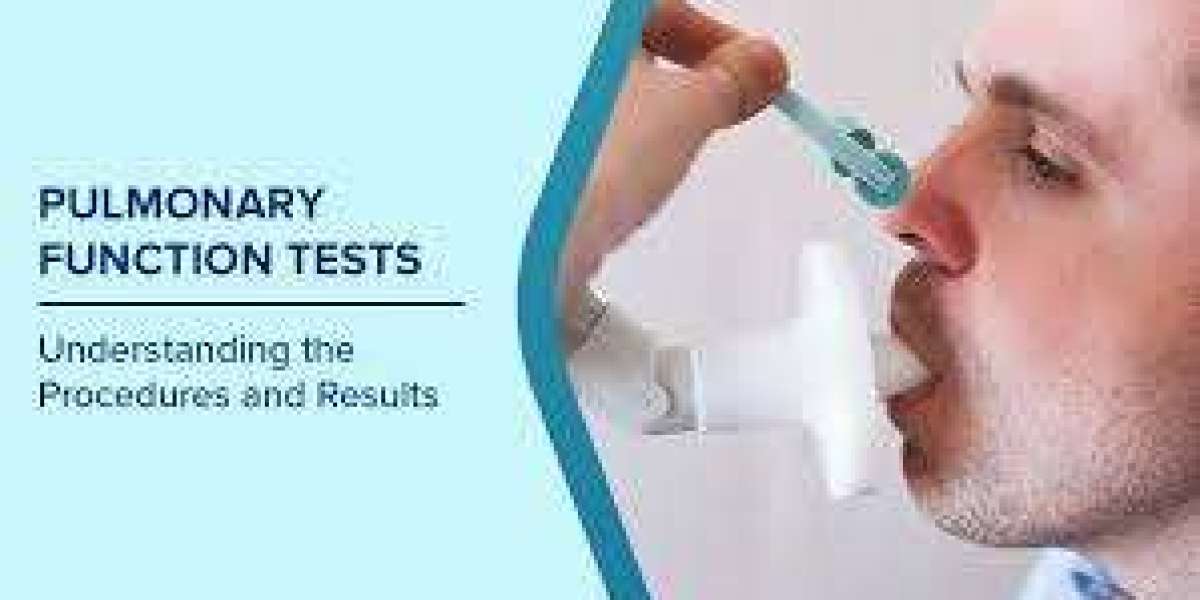Breathing is something most people take for granted—until it becomes difficult. For those experiencing persistent shortness of breath, chronic coughing, or tightness in the chest, these may be red flags pointing to a deeper respiratory issue. A Pulmonary Function Test (PFT) is a critical diagnostic tool that helps evaluate how well your lungs are working. Knowing when to get tested can be the difference between early intervention and a delayed diagnosis of a potentially serious condition.
In this article, we will explore the key signs that indicate it’s time to get a pulmonary function test, how the test works, and what you can expect from the results. We'll also dive into data-backed insights and expert recommendations to help you make informed decisions about your respiratory health.
What Is a Pulmonary Function Test?
A Pulmonary Function Test, or PFT, is a group of non-invasive tests that measure how well your lungs take in and release air and how efficiently they transfer oxygen into the bloodstream.
Common types of PFTs include:
Spirometry – Measures how much air you can inhale and exhale, and how quickly.
Lung volume tests – Assess the total amount of air your lungs can hold.
Diffusion capacity tests – Measure how well gases like oxygen move from the lungs into the blood.
These tests are crucial in diagnosing conditions like asthma, chronic obstructive pulmonary disease (COPD), pulmonary fibrosis, and other respiratory disorders.
Why Pulmonary Function Tests Matter
According to the World Health Organization, over 262 million people suffer from asthma, and COPD is the third leading cause of death globally. Early detection and management can significantly improve quality of life and reduce mortality. These Function Tests play an essential role in the early diagnosis and monitoring of these diseases.
“PFTs can uncover lung conditions even before symptoms appear, making them a valuable tool for early intervention,” says Dr. Emily Johnson, a pulmonologist at the American Lung Association.
Top Signs You Shouldn’t Ignore
1. Chronic Coughing
A cough lasting longer than eight weeks may be more than just a lingering cold. Chronic coughing could indicate asthma, bronchitis, or early stages of COPD. A spirometry test can help identify airway inflammation or obstruction.
2. Shortness of Breath
If you're winded after climbing a single flight of stairs, it’s time to take it seriously. Breathlessness during routine activities can signal underlying lung function decline or cardiovascular issues. A PFT can determine if the lungs are to blame.
3. Wheezing or Noisy Breathing
Wheezing, particularly during exhalation, is a hallmark symptom of asthma or obstructive airway disease. It may sound like a high-pitched whistle and can be intermittent or constant.
4. Increased Mucus Production
Producing excess mucus regularly can be a symptom of bronchitis or COPD. If it persists for more than three months, a Pulmonary Function Test should be considered.
5. Frequent Respiratory Infections
Recurring infections like bronchitis or pneumonia could indicate a weakened respiratory system. A lung function assessment can detect reduced lung capacity or airflow issues.
6. Smoking History
Whether you’re a current smoker or quit years ago, your lungs may still carry the scars of damage. The CDC reports that 80–90% of all COPD cases are caused by smoking. Early screening with a PFT is vital for monitoring lung health.
7. Occupational Hazards
Exposure to chemicals, asbestos, coal dust, or other airborne irritants in the workplace increases the risk of developing chronic lung conditions. OSHA recommends routine lung function screening for at-risk workers.
8. Diagnosed Lung Disease
If you already have a lung-related diagnosis (asthma, COPD, interstitial lung disease), these Function Tests are essential for monitoring the effectiveness of your treatment plan and adjusting medications accordingly.
9. Pre-Surgical Screening
If you’re preparing for surgery, especially involving the heart or lungs, your doctor may order a PFT to assess how well your lungs can handle anesthesia and recovery.
Who Should Get Regular Pulmonary Function Tests?
While not everyone needs regular testing, the following groups should consider annual or biannual evaluations:
Adults over 40, especially smokers or ex-smokers
Individuals with a history of asthma or chronic bronchitis
People working in industries with air pollutant exposure
Patients with autoimmune conditions like rheumatoid arthritis or lupus
Individuals experiencing unexplained fatigue or breathlessness
What to Expect During a Pulmonary Function Test
Most PFTs are done in a clinical setting and typically last between 30 and 60 minutes. You’ll be asked to breathe into a mouthpiece connected to a spirometer or other machine. Some tests may require you to inhale medications that open airways (bronchodilators) to see how your lungs respond.
It’s important to:
Avoid heavy meals before the test
Refrain from smoking or drinking alcohol 4–6 hours prior
Wear loose-fitting clothing
Inform your doctor about current medications
Understanding Your Results
These function test results are often compared to normal values based on your age, height, sex, and race. Key parameters include:
FEV1 (Forced Expiratory Volume in 1 second) – How much air you can forcefully exhale in one second.
FVC (Forced Vital Capacity) – The total amount of air exhaled after taking the deepest breath possible.
FEV1/FVC Ratio – Helps diagnose obstructive or restrictive lung disease.
A lower-than-normal result may point to asthma, COPD, or interstitial lung disease, prompting further investigation and treatment.
The Commercial Value of Early PFTs
Getting tested early isn't just a health decision—it’s a financially wise one. Treating chronic lung diseases in their advanced stages often involves hospitalizations, oxygen therapy, and expensive medications.
Early detection through these Function Tests allows:
Timely lifestyle interventions (like quitting smoking)
Cost-effective treatments
Fewer ER visits and hospital stays
According to a study published in CHEST Journal, patients with early COPD intervention reduced healthcare costs by nearly $1,800 annually.
Pulmonary Function Tests Near You
If you’re experiencing any of the symptoms mentioned, don’t wait. Clinics across India and globally now offer Pulmonary Function Tests at affordable rates. Look for accredited centers that follow American Thoracic Society (ATS) standards and provide full diagnostic services under physician supervision.
You can search terms like:
“Pulmonary Function Tests near me”
“Affordable lung function test Bangalore”
“PFTs for asthma and COPD screening”
These keywords not only help locate services but also connect you with clinics that understand the importance of patient-centered, accurate diagnosis.
FAQs
1. Is a PFT painful?
No. these Function Tests are non-invasive and painless. Some may cause lightheadedness due to deep breathing, but it's generally safe.
2. How long do the results take?
Many facilities offer results the same day, but some may take 24–48 hours for full reports.
3. Can children get PFTs?
Yes. Pediatric PFTs are available and particularly useful for diagnosing childhood asthma or allergies.
4. Is it covered by insurance?
Many health insurance providers cover PFTs if recommended by a physician. Always check with your insurer beforehand.
5. How often should I get a PFT?
This depends on your risk factors. Smokers and individuals with existing conditions may need annual tests, while others may only need testing when symptoms arise.
Conclusion
Your lungs are vital, and breathing difficulties should never be ignored. Pulmonary Function Tests are a reliable, quick, and non-invasive way to uncover hidden respiratory issues before they become chronic or irreversible. Whether you're a former smoker, have occupational exposure, or simply struggle with unexplained breathlessness, scheduling a PFT could be a life-changing decision.
Are you ready to take control of your respiratory health?



